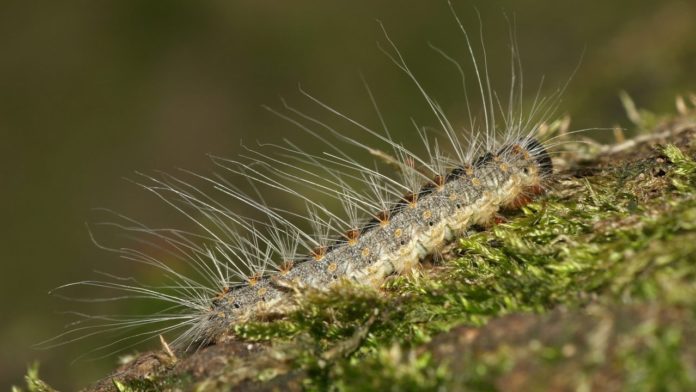
The oak processionary caterpillar should be controlled in a more nature-friendly manner. This is according to the Party for the Animals in Eindhoven (PvdD). Currently, the oak processionary caterpillar is exterminated by means of small nematodes (a type of worm) that lay eggs in the caterpillar and the use of a poison called Xentari. However, these methods have a negative effect on nature.
Because of this, the PvdD has asked questions to the council. The political party wants more nature-friendly methods to be used in the near future to control the oak processionary caterpillar in Eindhoven.
Negative Effect
The current methods are said to have some shortcomings. The pesticides not only affect the oak processionary caterpillar, but also other insects. This in turn affects other animals such as the great tit and the bat. Given the damage they cause, the party wants to know how the council justifies the use of these agents. Especially when there are alternatives. For example, in Bergeijk the municipality works together with Wageningen University to control the oak processionary caterpillar in a different way. Together, they are trying to restore the balance in nature in order to find a sustainable and inexpensive solution.
Eco-Friendly solution
The Party for the Animals is also in favour of this plan. The political party believes that the rise of the oak processionary caterpillar has to do with the imbalance in nature, partly as a result of green management and partly due to climate change. The municipality should take a good look at the ecosystem in the city and ensure a balance. This could be achieved by planting more types of trees and creating a more pleasant environment for the natural enemies of the oak processionary caterpillar.
Response
The Municipal Executive is expected to respond to the council’s questions in mid-June.
Source: Studio040
Translated by: Anitha Sevugan















